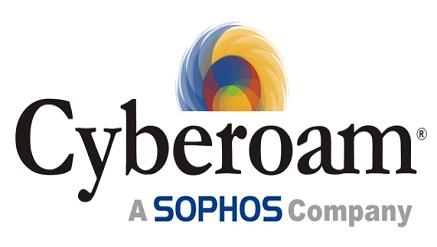E-Business
Cyberoam Accelerates MSS Delivery Automation, Unleashes ConnectWise
Cyberoam, the leading global provider of network security appliances on Tuesday announced deeper integration between Cyberoam Central Console (CCC) and ConnectWise, the developer of the leading service management software designed exclusively for IT service providers, VARs, ISVs and MSPs.
The development is aimed at enabling accelerated process automation meeting business logic needs and simplified management of managed security services delivery.
It allows automatic ticket generation and resolution for key security events right on the ConnectWise service board, helping MSSPs eliminate manual intervention to generate / resolve tickets and demonstrate timely responsiveness to meet SLAs with confidence.
Existing integration of Cyberoam network security appliances (UTM, NGFW) with ConnectWise – Cyberoam UTMs and Next Generation Firewalls already offer pre-built, out-of-the-box ConnectWise integration for bundled Security Reports with ConnectWise Management Summary Report.
This gives ConnectWise partners including MSPs, simpler and direct access to key Cyberoam reports such as Websites Usage, Blocked Web Attempts, Internet Bandwidth Usage and Attacks detection directly from the ConnectWise Management Summary interface.
Speaking on enhanced & deeper integration with ConnectWise using Flowgear middleware, Abhilash Sonwane, Sr. vice president, Product Management at Cyberoam, said, “Many MSSPs including our partners rely on ConnectWise to automate business process. We see a growing number of MSPs and MSSPs chasing emerging business opportunities in managing and securing customers’ network infrastructure.
“To seize such recurring revenue opportunities, automation and operational efficiency are among key strengths. With this augmented integration with ConnectWise, Cyberoam aims to enable enhanced business value, simplified management and more efficient delivery of managed security services for our partners & MSSPs who use Cyberoam Central Console (CCC) for centralized security management as well as ConnectWise.”
This enhanced integration allows the ConnectWise platform to leverage the Web Application Programming Interface (API) of Cyberoam Central Console (CCC).
Moreover, by adding Flowgear between CCC and ConnectWise, the integration enables automatic Ticket Generation & Resolution for all CCC alerts right at the ConnectWise dashboard level.
Benefits of enhanced integration between Cyberoam and ConnectWise to MSSPs and Cyberoam Partners, according to Jitendra Bulani, manager, Marketing Communications, Cyberoam, include, elimination of manual intervention to generate and resolve tickets with automatic Ticket Generation & Resolution for all CCC Alerts at the ConnectWise PSA service-board
The CCC alerts include, threat-count for Web & IPS threats, Mail threats, Total Virus & Spam Mail counts and Unhealthy surfing hits; Appliance management and status change notifications for Appliance Connectivity with CCC, Loss of Internet or VPN connectivity and HA failover state and Reminders for Security Subscriptions renewal / expiry.
It also entails capacity utilization notifications for CPU, Disk & Memory usage.
Cyberoam sees Managed Security Service Providers (MSSPs) and Managed Service Providers (MSPs) as key partners and values their trust in Cyberoam’s network security appliances to serve their customers.
Through this deeper integration with ConnectWise, Cyberoam aims to extend the business value of Cyberoam network security appliances and managed security services offerings to its MSSP partners.
Designed exclusively for the IT Channel, ConnectWise is the leading business management solution for service providers, MSPs, technology consultants, integrators, and developers.
Today more than 80,000 IT professionals rely on ConnectWise to achieve greater accountability, operational efficiency and profitability.
ConnectWise fully integrates CRM, sales, help desk ticket and tracking, project tracking, IT service management, SLAs, dispatch scheduling, mobile IT services, time and expenses into singular IT management software to dramatically streamline IT companies.
On the other hand, Cyberoam Technologies, a Sophos Company, is a global Network Security appliances provider, offering future-ready security solutions to physical and virtual networks in organizations with its Next-Generation Firewalls (NGFWs) and Unified Threat Management (UTM) appliances.
E-Business
Ride the ‘Wicked’ Wave: Temu Brings Green Magic to Christmas
Temu is set to enchant the holiday season with its unique blend of green magic, bringing a touch of festive wonder to Christmas celebrations. The initiative, themed “Ride the ‘Wicked’ Wave,” promises to deliver an unforgettable experience, combining technology, entertainment, and commerce to create a magical holiday atmosphere.

Temu’s green magic initiative aims to captivate audiences with a variety of festive offerings, from fashion to home decor, handmade crafts, beauty items, chic clothes, shoes, and more.
The platform’s innovative approach ensures that customers can enjoy a seamless shopping experience, with free shipping on all orders1.
As part of the celebration, Temu has also introduced a magical winter Christmas backdrop, perfect for creating a festive ambiance at home.
This backdrop, made from high-quality polyester, is designed to bring the spirit of the season to life, making it an ideal addition to any holiday decor.
With its commitment to providing exceptional products and services, Temu continues to set new standards in the e-commerce industry, ensuring that customers can enjoy the magic of Christmas in style
E-Business
Kaspersky Cybersecurity Experts Warn of Evolving Holiday Scams
With the holiday season here, it’s not only a time for magic and celebration but also a prime opportunity for fraudsters to exploit the festive rush for gifts and bargains.

Amid the sparkle of year-end celebrations, cybersecurity experts at Kaspersky have identified several prominent scams targeting consumers across various regions and languages.
Fake holiday shops
Deceptive online stores mimic the look and feel of legitimate e-commerce sites, offering seasonal items such as decorations, gifts, and even trees at steep discounts.
These sites often appear highly localised, adapting their language and currency based on the user’s geographic location, leveraging data extracted from browsers.
Victims typically encounter these stores by following links in ads or pop-ups.
These sites aim to steal funds. Often, these fraudulent stores exist only for a short period, as they get flagged by the vendors of goods.
Free mobile data offer
This scam plays on the allure of free services, claiming to provide free mobile data valid across all major telecom providers.
In order to receive the free data, victims are required to share the promotion link with 10–15 contacts via WhatsApp, ensuring the scam spreads exponentially.
After sharing, victims are prompted to enter their personal details — name, phone number, and email — into a form.
The collected data is then sold on the Dark Web or used in other fraudulent activities.
In some cases, victims unknowingly download malware that compromises their devices, leading to further exploitation.
Holiday payments on behalf of government agencies
Fraudsters impersonate government authorities, promising fictitious payments in celebration of the holidays.
This scam has been reported in several African countries, including Kenya and Nigeria.
To receive payment, victims are directed to fill out a survey which requires personal details like name and phone number.
Once the survey is completed the user is asked to share the link to the announcement with their connections via WhatsApp.
These details are collected and added to fraudulent databases, then sold to third parties or used for phishing attacks and identity theft.
This scam exploits trust in government systems and the festive spirit of giving.
Christmas recipe scam
This scam begins with a seemingly harmless email promoting a holiday cake recipe.
Victims are encouraged to pay a small fee to access the recipe.
Once payment is made, the victim’s credit card information is stolen. The fraudsters also collect other personal information essential for accessing banking services.
“Holiday scams are not a new phenomenon, but they have evolved to become increasingly sophisticated, leveraging regional traditions and technology to exploit unsuspecting victims.
The rush of the holidays makes people more vulnerable — they’re distracted, eager to grab a deal, or trust promotions that align with festive themes. Cybercriminals are not just stealing money — they’re building massive databases of personal information that fuel future fraudulent schemes.
The holiday season is a time for joy and giving, but users need to remain vigilant to ensure they’re not unknowingly giving fraudsters the tools to exploit them further,” said Olga Svistunova, Senior Web Content Analyst at Kaspersky.
E-Business
Hackers Seize NBS Newly Redesigned Website
Cybercriminals have persisted in targeting Nigerian government websites, with the most recent attack on the National Bureau of Statistics (NBS).

The NBS confirmed the development in a brief statement posted on its X (formerly Twitter) account
It said that its newly redesigned official website has been hacked.
The NBS disclosed the incident and assured the public that efforts are underway to recover the website.
It urged the public to disregard any messages or reports posted until the full recovery of its website.
The statement on X read: “This is to inform the public that the NBS website has been hacked, and we are working to recover it. Please disregard any message or report posted until the website is fully restored.”
The NBS plays a vital role in Nigeria’s development, serving as the official statistical agency responsible for collecting, analyzing, and disseminating statistical data on the country’s economy, governance, and development
This marks the latest in a series of attacks on Nigerian government websites, a trend that has been ongoing for some years.
From government ministries to officials, cyberattacks in Nigeria have surged to alarming levels, with even financial institutions falling victim.
The Nigerian Communications Commission (NCC) and National Information Technology Development Agency (NITDA) frequently issue warnings of cybercriminals targeting individuals, government entities, banks, and telecom companies.

 E-Business3 days ago
E-Business3 days agoRide the ‘Wicked’ Wave: Temu Brings Green Magic to Christmas

 Telecom3 days ago
Telecom3 days agoNCC Holds Virtual Forum on A2P Licensing Framework

 News3 days ago
News3 days agoPalmPay, Jumia Reward Users in Festive Campaign

 Telecom24 hours ago
Telecom24 hours agoFrom Niche App to Global Giant: TikTok’s Controversial Journey

 Telecom24 hours ago
Telecom24 hours agoGroup Advocates for Digital Rights at 2024 Internet Governance Forum

 Broadcasting24 hours ago
Broadcasting24 hours agoAero Contractors Celebrates Long-Serving Employees at Award Ceremony

 E-Financial24 hours ago
E-Financial24 hours agoCBN Permits BDC Operators to Buy FX from NAFEM During Festive Season

 Telecom24 hours ago
Telecom24 hours agoPatricia Technologies Begins Repayments to Customers Affected by 2022 Security Breach

















